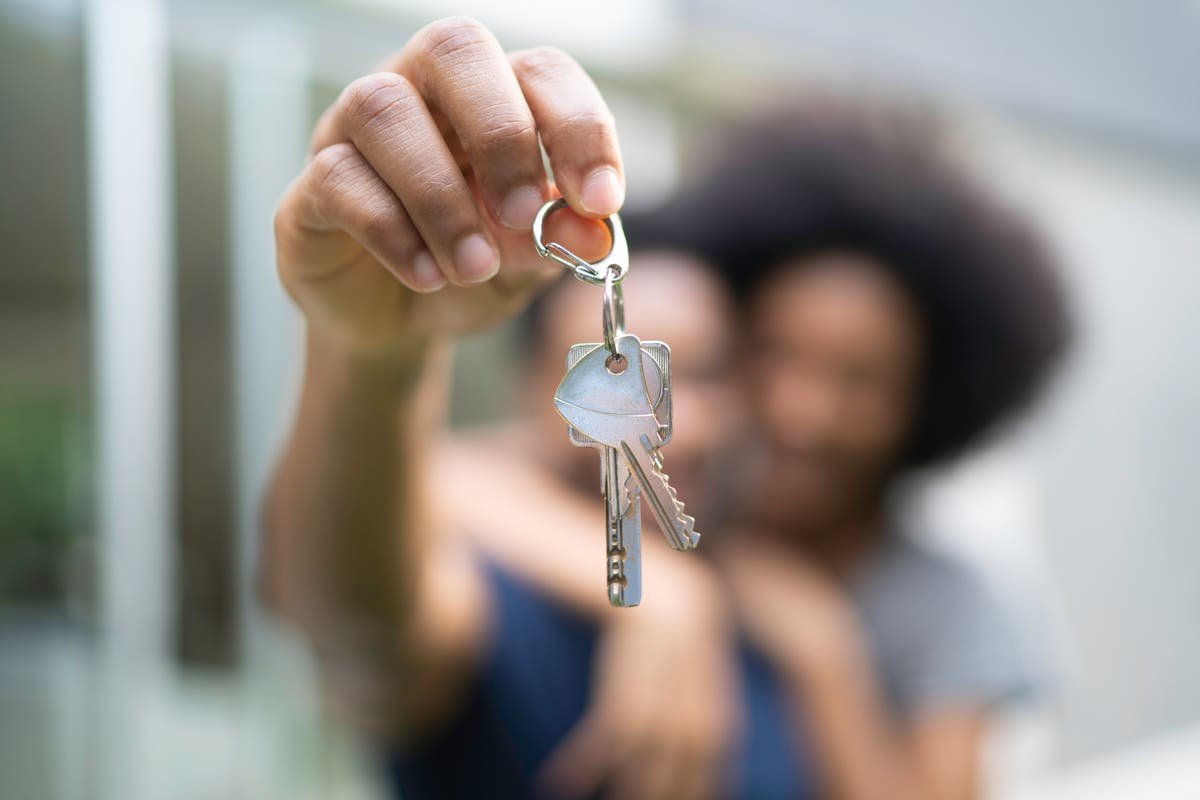
Can I beat the March stamp duty deadline and buy a new home?
Your support helps us to tell the story
From reproductive rights to climate change to Big Tech, The Independent is on the ground when the story is developing. Whether it’s investigating the financials of Elon Musk’s pro-Trump PAC or producing our latest documentary, ‘The A Word’, which shines a light on the American women fighting for reproductive rights, we know how important it is to parse out the facts from the messaging.
At such a critical moment in US history, we need reporters on the ground. Your donation allows us to keep sending journalists to speak to both sides of the story.
The Independent is trusted by Americans across the entire political spectrum. And unlike many other quality news outlets, we choose not to lock Americans out of our reporting and analysis with paywalls. We believe quality journalism should be available to everyone, paid for by those who can afford it.
Your support makes all the difference.
Homebuyers are facing a race to complete property purchases before stamp duty thresholds drop at the end of March.
Currently, first-time buyers don’t have to pay any stamp duty on the first £450,000 of a property purchase, while those moving up the ladder only owe the controversial tax on purchases above £250,000.
But from April 2025, the first-time buyer threshold will drop to £300,000 and to £125,000 for home movers.
The changes could add thousands to the cost of buying a home.
For example, a first-time buyer purchasing a £425,000 property will pay no stamp duty today, according to Zoopla research, but their property tax bill will rise from April to £6,205.
So it’s no surprise that the latest Rightmove house price index shows the number of buyers contacting estate agents about properties for sale since Boxing Day is already nine per cent ahead of last year and the number of sales being agreed over the same period is up by 11 per cent as people are keen to get deals done and save money.
However, with mortgage applications typically taking two to six weeks and the conveyancing process ranging from 12 to 16 weeks, there are warnings that many buyers could be left disappointed with higher stamp duty bills in April.
Robert Sinclair, chief executive at the Association of Mortgage Intermediaries, says: “Managing mortgage borrowers’ expectations is of primary importance at such times as these.
“Brokers and lenders are working hard to complete on as many affected cases as possible before 1 April, but there will no doubt be many which don’t beat the deadline.”
Paula Higgins, chief executive of the HomeOwners Alliance, warns that if you haven’t had an offer accepted on a property by now, it is likely too late to complete a purchase before the stamp duty hike.
However, it’s still possible if you’re a cash buyer, there’s no chain involved, or you’re purchasing a new home that’s ready to move into.
Here is how to boost your chances of beating the stamp duty deadline.

Focus on freehold
To improve your chances, says Higgins, focus on freehold properties rather than leasehold homes – these are typically flats or houses on new-build developments.
Higgins says: “Leasehold transactions can face delays, as they rely on the freeholder or managing agent providing information on service charges and other costs. Alternatively, consider buying at an auction—either a traditional auction or the modern method of auction, where you have 56 days to complete.”
Get your finances in order
A mortgage application will go more smoothly if you can provide evidence of your income and you have a decent credit score.
Robin Thomas of Recoco Property Search, says it is important to assess your financial position and ability to purchase and seek help from a mortgage broker on how much you can realistically afford to borrow.
Thomas says: “If you have money in a bank account or building society on deposit check now, how quickly you can withdraw the money to transfer to your solicitor for exchange of contracts and completion.”
Choose your agent, broker and conveyancer carefully
The best way to speed things up is to call in the professionals who can ensure a purchase goes through smoothly.
Check online reviews or seek recommendations from friends.
Mark Harris, chief executive of mortgage broker SPF Private Clients, says: “Pay a good lawyer rather than using free conveyancing services and of course use a whole-of-market mortgage broker who can make sure you go to the right lender in the first instance and ensure your application proceeds as quickly as possible.”
If you need to sell your property in order to purchase your new home, Thomas suggests inviting three estate agents who should all be recommended to you and ask them to give you realistic advice about the saleability and likely sale price.
He adds: “Do not be tempted to instruct the agent who gives you the highest estimate of sale price and the lowest commission rate.”
Choosing the right estate agent is also important, as they can be key to ensuring properties are marketed properly and progressing the sale.

Higgins says: “Estate agents are motivated to see sales complete quickly, as they only receive their commission after completion. Ask if they have a dedicated sales progression team to help smooth the process.”
Amy Reynolds, head of sales at estate agency Antony Roberts, advises that sellers should appoint a solicitor early in the process to ensure they are ’sale ready,’ while buyers should purchase the necessary searches and obtain a management pack – if needed – as soon as possible.
She says: “Buyers can also request that their solicitor does their proof and source of funds quickly and early on, not at the point of exchange where delays can hold everything up.
“If the seller and buyer are organised, a sale can still be agreed in February and complete in March but it will take some effort from all parties.”
Don’t rush
Although time is critical, don’t overpay just to get a deal done if a property seems overpriced and don’t skip a home survey to save time or money.
Higgins says: “A thorough survey can help you avoid costly surprises later, potentially saving more than what you’d gain from stamp duty savings.”
Thomas says you should decide whether you need a building survey, drainage survey, electrical survey or any other inspections, tests or reports that your building surveyor or solicitor recommends.
He adds: “Above all keep up constant, clear and speedy lines of communication, whether by email and/or telephone, between you and your solicitor, estate agents and the people from whom you are buying and to those who you are selling.
“If you do all of the above, you should be able to exchange before 1 April 2025 and move in to your new home before Easter.”







